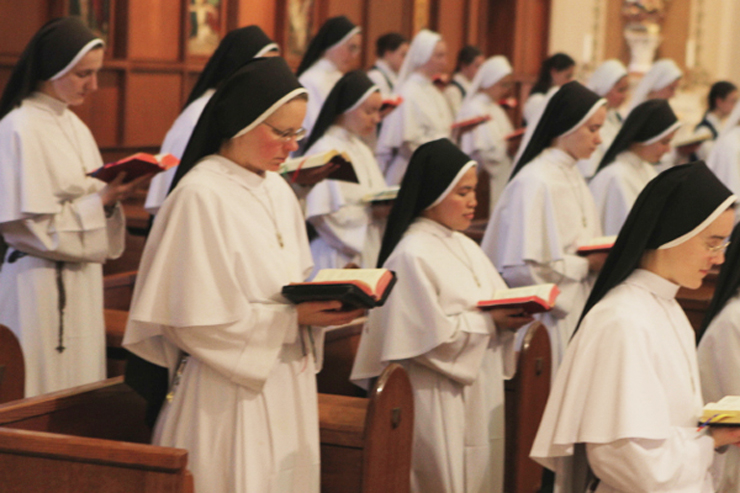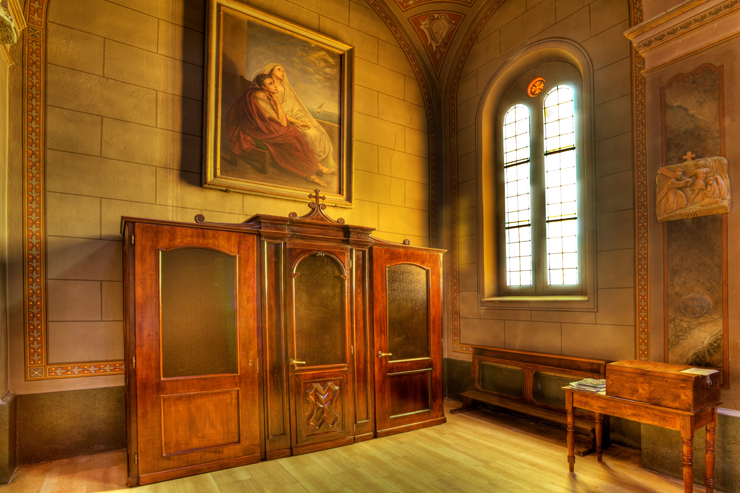The renowned psychologist, Paul C. Vitz, has made the tragic observation that “America is the most polytheistic nation in history; we worship over 350 million gods.”
So disconnected have we become from the truth about the human person that we do indeed fancy ourselves our own creators. Through a confluence of intellectual errors, philosophical hubris, educational disintegration and moral decay, we find that we have succumbed to the temptations of the great deceiver by eliminating God from our shared human experience. No longer do we consider the Divine Law, for we have forgotten about how to know God.
Francis Bacon facilitated the shift from recognizing the objective order of the Natural Law with his new “summum bonum” of conquering nature by applied science. Thus the quest to understand our nature becomes subjective and subject to change by the power of the technological artifice animated by whimsical desire.
The truth about existence is that certain facts require certain obligatory actions for the human soul interested in living out his intended purpose. Another devastating fact about the modern darkness is that our final end, indeed the very purpose of every human life, is obscured. If we do not know who we are, what we are, from whence we came and to where we are going, then this life becomes for us purposeless, directionless and ultimately without permanent meaning.
The first and most basic fact of our being is that we are created by the Creator and this implies our purpose. If humans do have a purpose on this mortal coil, and indeed it is a most obvious fact of human existence (even more so than taxes), then it begins by understanding that we are creatures. It is an article of Faith and an a priori assumption that determines the depths to which we may descend in understanding the nature of ultimate reality concerning the human person. Without this first step of acknowledging the Creator, the investigation veers off the path of truth. If we accept our creaturely status, then our second order of business is to discover the facts of our being and the laws that govern our existence.
In Genesis 1:27 it is clearly stated for us that “God created man in his own image, in the image of God he created him, male and female he created them.” Our creaturely status is established, the vital distinction of sex is established and our image and likeness to God is established. All three points require observance and call us to certain duties. To further elucidate these revealed facts, we read in paragraph 356 of the Catechism, “Of all visible creatures only man is ‘able to know and love his creator.’ He is ‘the only creature on earth that God has willed for its own sake,’ and he alone is called to share, by knowledge and love, in God’s own life. It was for this end that he was created.” These stunning truths imply our freedom and by virtue of the fact that we are moral agents with free will, we are obligated to discover the laws that govern the Cosmos, the universal truths that govern the transcendent order, and the moral landscape that lies within each human soul. In discovering the laws, we are then to follow them by the use of our free will if we intend to end in the Good graces of our Creator.
Paragraph 357 of the Catechism further clarifies that by being made in the image and likeness of God we are in possession of a certain dignity that makes us a someone, not a something. This devastating age sees a startling number of souls who love not people but things, and in loving things they use people to acquire them. This is a reverse order that indicates a lack of knowledge about who we are. The Catechism goes on to explain that man is the only creature who “is capable of self-knowledge, of self-possession and of freely giving himself and entering into communion with other persons.” We are the only creature who “is called by grace to a covenant with his Creator.” No other creature can self-donate in imitation of Christ. We find in this potential to self-donation the sacrifice that constitutes the theological virtue of charity.
If we rightfully recognize that facts call for judgments which compel a moral agent to act in accord with final ends, then we can come to know that the fact that we are made in the image and likeness of God calls us to particular duties. In John 17:3 we learn that “God our Savior desires all men to be saved and to come to the knowledge of the truth.” That truth is God’s conception of Himself, His only begotten son the Logos whom we know as Jesus Christ. And St. Paul tells us in 1 Timothy 3 that “there is no other name under heaven given among men by which we must be saved.”
If we can accept that we are created by the Creator and that we are made in His image, then we can discover our true purpose revealed by the prophets and Christ Himself—to end in Heaven. The quest to know ourselves and to learn of our final purpose and destiny is a difficult and arduous mission. In paragraph 359 of the Catechism we learn that “in reality it is only in the mystery of the Word made flesh that the mystery of man truly becomes clear.” To be made in the image and likeness of God is an unfathomable mystery, the mystery in which we will remain in awe and wondering until the end of time when by the saving graces of Christ we may end face to face with our Creator om eternal beatitude.
Coming to the above stated conclusion is increasingly difficult. We are left in these dark days without a clear view of Divine Law, except by the observance of Christ. The scribes and Pharisees of the day have convinced us that the natural law doesn’t apply to those who have the means to overpower it by force of ingenuity, artifice and human will. The default position for the uninitiated is to believe that moral agency is appetitive and subjective. We find that the intellect, meant to be in service of the law written on the human heart, is now in the service of the appetites and serves, not to discover truth, but to rationalize its desires regardless of their moral order.
The alternative to fancying ourselves our own creators is the almost unbearable truth that we are made in the image and likeness of God, we are Imago Dei! By that fact, we are called to action to use our gift of freedom to accept or reject our intended purpose. This calls us to bind ourselves to Divine Law. In trying to discern what this is we can witness the Divine Law perfectly embodied by our Lord and Savior Jesus Christ. Let us renew our contract with God to know, love and to serve Him by picking up our cross and following Him, and if we are ever in doubt, let us imitate Christ to the best of our ability. If we proceed on the solid ground of the truth about who we are as Imago Dei and properly use our free will to discover and embrace the all good and true will of our Creator, we will encounter our real end in permanent beatitude. True freedom awaits for those who embrace their status as Imago Dei.














